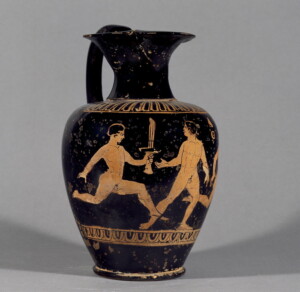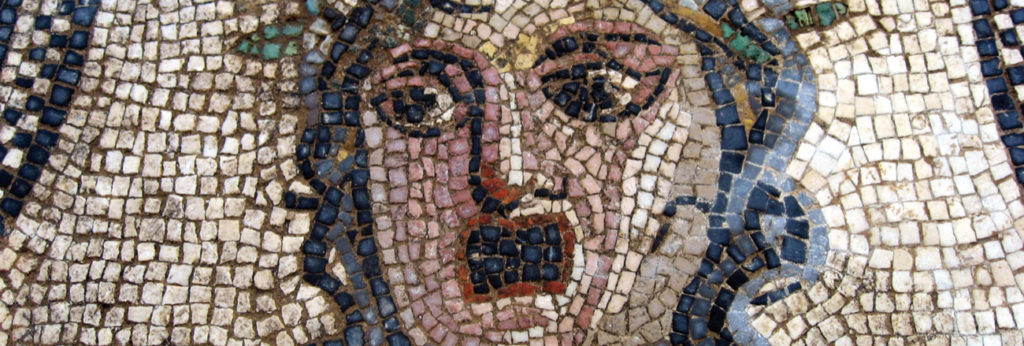Saturday 16 and Sunday 17 September
On the European Heritage Days, you get the chance to see the museum’s permanent collections and the temporary exhibition ‘Living Memory. Oliver Laric’ for free.
Du au 17 septembre 2023
Animation
Saturday 16 and Sunday 17 September
On the European Heritage Days, you get the chance to see the museum’s permanent collections and the temporary exhibition ‘Living Memory. Oliver Laric’ for free.
— Non-stop
Free, no booking required
Demonstration : Sporting equipment
Saturday 16 and Sunday 17 September – From 10am to 12:30pm and 1:30pm to 6pm
See the equipment used in several Greek sports (discuses, halteres, javelin points, charioteer helmet, etc.)
By the non-profit organisation ACTA
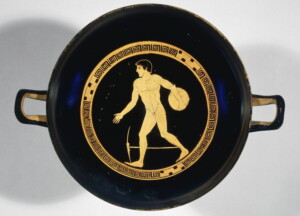
Workshop & demonstration : Roman circus workshop
Saturday 16 and Sunday 17 September – At 10:30am, 2pm & 4pm
Discover the Romans’ favourite sport – chariot racing – and the equipment used by a charioteer (chariot driver). Children (aged 5 and up) will be able to take part in a race on a draisienne or scooter.
By the non-profit organisation ACTA
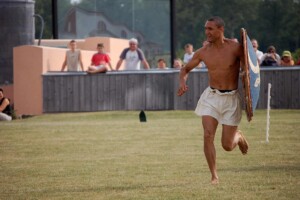
Workshop & demonstration : Long jump with halteres workshop
Saturday 16 and Sunday 17 September – At 11am, 2:30pm & 4:30pm — Duration : 30min
Introduction to the long jump event of the Ancient Greek pentathlon
By the non-profit organisation ACTA
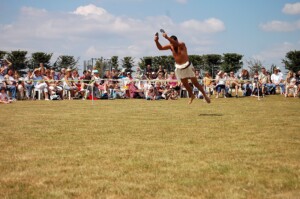
Workshop & demonstration : Pygmachia workshop
Saturday 16 and Sunday 17 September – At 11:30am, 3pm & 5pm — Duration : 30min
A (completely safe!) introduction to ancient Greek boxing.
By the non-profit organisation ACTA
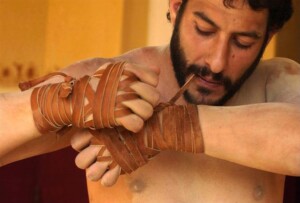
Workshop : Drawing Ancient Sports
Saturday 16 September – At 10:45am, 2:15pm & 4:15pm
Sunday 17 September – At 2:15pm & 4:15pm
— Duration : 1h15
After seeing the Greek ceramics in our collections, the children will make a copy of an item of black-figure pottery on clay, then do a painting of a sport motif.
For children aged 7 and up, unaccompanied
Auditorium foyer
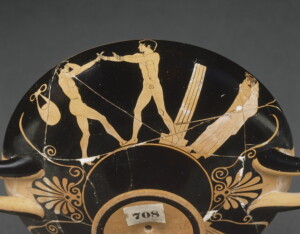
Talk : From Roman Circus Games to Modern-Day Football
Sunday 17 September – 11am
— Durée : 1h30
Les citoyens romains étaient-ils de grands sportifs ? La comparaison avec la Grèce amène à donner une réponse négative et c’est bien à tort car en réalité ils ont fait beaucoup de sport comme le montrent diverses sources anciennes. En revanche, chacun sait que les Romains étaient passionnés par le spectacle des jeux du cirque et des courses de chars en particulier. Or, le mode d’organisation de celles-ci, et le statut des vedettes qu’étaient les cochers de quadriges évoquent notre football actuel et le sport-business.
By Jean-Paul Thuillier, Emeritus Professor at the Ecole Normale Supérieure (Paris) and author of several books on ancient sports
Auditorium du Musée
Accès par le jardin
